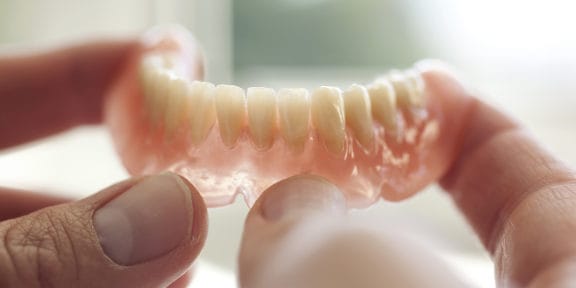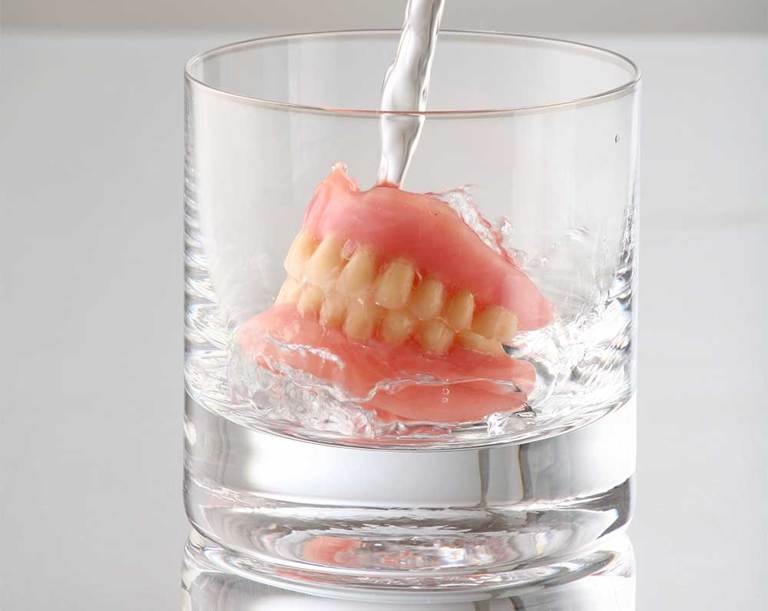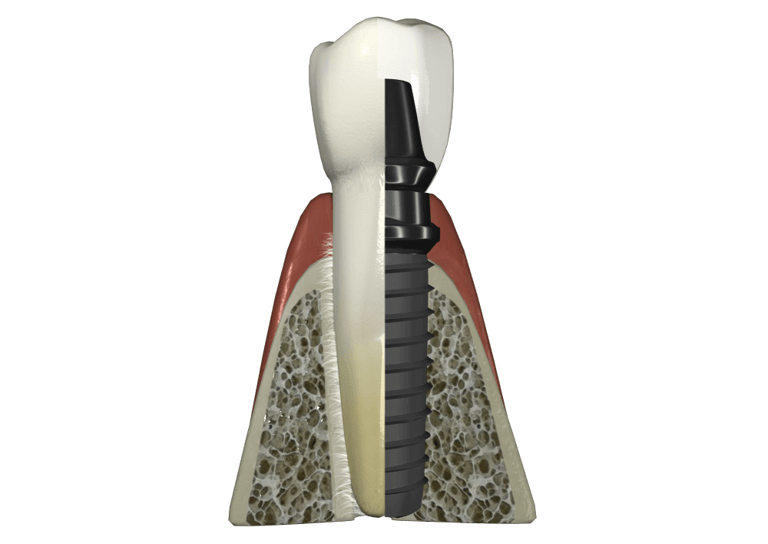What Is A Full Arch Denture?
A full arch denture is an intra-oral (inside the mouth) appliance designed to replace a full set of teeth on either the upper or lower arch. Full arch dentures require support from your gum pad and may require the use of special adhesive to help lock the denture into place.

Full Arch Dentures
A full arch denture is a removable tooth replacement option for those who need all their teeth replaced. They can be crafted to provide the characteristics (tooth shape and color) the patient desires. Advances have been made in the materials used for dentures and in the way they are designed. If you already have dentures (partial or full arch) you may be experiencing a loose fit or denture slipping. This can lead to gum sores, can affect your chewing and your speech and decrease your confidence when speaking and/or laughing with others. We can help restore your dentures to the correct fit.
Why A Full Arch Denture?
If you are in need of replacing an entire arch of teeth, a full arch denture is going to be the most affordable tooth-replacement option. Additionally, not having any teeth causes mild to severe physical changes in your face mouth and lips. A full arch denture can restore some biting and chewing functionality and bring back a more attractive appearance.

Over Denture
An over denture fits on top of natural teeth or dental implants. Many patients suffer with ill fitting and loose dentures that move or even fall out when speaking or eating. One way of solving this problem is to construct a dental plate that goes over and attaches to something underneath it. Keeping a few natural teeth or placing dental implants in the bone under the denture also helps keep the jaw bone healthy. This avoids much of the natural jaw bone loss often seen after teeth are removed. Traditional over dentures go over natural teeth. A denture can be made that goes over and attaches to one or both cuspids. Implants supported over dentures fit on top of dental implants. A retainer bar or retention balls are placed on the implants and special attachments are inserted into the denture to grab onto these retention devices. A new method using mini implant dentures is becoming increasingly popular. Mini implants are very thin, long titanium implants that screw into the jaw bone. They can be placed and old dentures can often be retrofitted to the implant.
Alternatives to Denture Arches
Full arch dentures are not your only means of tooth replacement option if you are missing or need to replace teeth in your lower or upper arch. Dental implants are a permanent alternative to full arch dentures and bring additional benefits that dentures cannot provide and will outlast normal dentures even under optimal conditions.

How Much Do Full Arch Dentures Cost?
Generally speaking, full arch dentures are extremely affordable and can cost less than a single dental implant. However, the benefits and better quality of life dental implants bring is something most patients choose when replacing their teeth.
The actual cost of a full arch (upper or lower) denture depends on your specific needs and materials used. The best way to receive an accurate quote on a full arch denture is to request an appointment or call us at (209) 524-4000 and come in to be evaluated. All it takes is a single visit so come see us soon!

The Cons of Full Arch Dentures
Full arch dentures are the cheapest form of replacing an entire arch of teeth but they are not necessarily the best option. Here are a few downfalls to full arch dentures that occur in nearly every situation:
Adjustments & Re-fitting & Replacement
Throughout your lifetime, dentures will need to be replaced and adjusted which can become time consuming and expensive. It is a simple fact that dentures start to become loose and can break through normal activities such as talking, eating, etc. If a denture arch breaks, it may be possible to repair but in some cases it will need to be replaced entirely.
Bone Resorption (degeneration)
If you do not replace tooth roots, the bone where the tooth roots used to be will start to degenerate and shrink. This not only means you'll need to get your dentures re-adjusted but it also means dental implants become less and less of a future option to replace teeth due to the amount of bone required to place the implant becomes less and less.
Impaired Speech
Full arch dentures take up more space in the mouth than your normal teeth. Because of this, there is an adjustment period of time where you may notice difficulty in pronouncing certain words or talking in general. As dentures get re-adjusted and re-fitted, you may notice a difference in pronunciation and will have to make minor speech adjustments again.
Bulky & Uncomfortable
Dentures are typically not associated with comfort and although today's technology has made wearing full arch dentures more manageable, as you speak and chew, dentures exert their forces onto the gum bed below and tend to cause soreness to these sensitive tissues. Additionally, the bulk of having a denture in your mouth can cumbersome.
